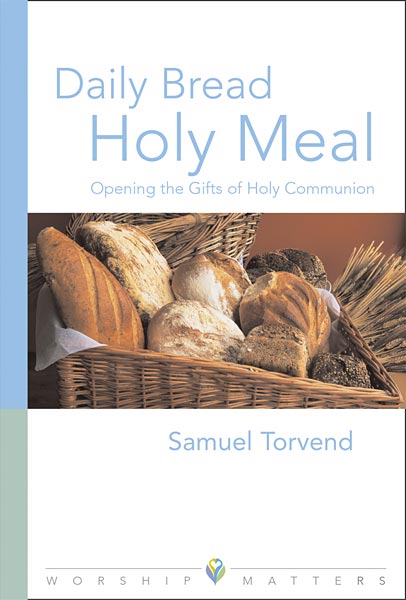Ollie Mae’s Molasses Raisin Bread
When I teach first communion I
tell my story from internship in Baltimore. We also read through the story of
“Grandma Ollie Mae’s Molasses Raisin Bread” from Samuel Torvend’s book Daily
Bread, Holy Meal. It is a way to touch upon the major aspects of communion
by analogy. The story about Ollie Mae’s bread reminds us how re-membering
something creates a community, how the bread described in the book is a bread
of everyday folks and a bread for a journey. It is also overabundant and filled
with joy and thanksgiving. While that doesn’t tell the whole of what makes
Communion Holy, it is a good start.
Holy Communion is a meal of memory—like Paul we pass on what was first
given us. One of the few non-negotiables I learned in liturgy class was that
the bread used for Holy Communion needs to be the simple staple food of a
culture, and the wine needs to be the celebratory drink of the culture—common
joy. Communion is also bread for the journey—not confined to an upper room in
Jerusalem or the road to Emmaus, but it goes with the faithful to the end of
the earth and sustains us at each new place we go. There is always too
much—that’s a way to talk about grace, God always offers more; as the Psalm
says, God pours oil upon our heads until our beards drip, and our cup
overflows!
Finally, we read through another
book Baptized, We Live by Daniel Erlander. In it there is a description
of Holy Communion that helps us to grasp the element missing from the Rasin
Bread analogy, the presence of Christ. We remember Christ present at the last
supper, yes, but also present with us, he, not the Presider, is the host of our
most holy meal. But not only that, this meal is a foretaste, a foreshadowing, a
momentary unveiling of that which shall be, it is the banquet of the Kingdom of
God Jesus talks about in many of his parables, breaking into our world in the
celebration!
To quote another the Erlander book,
“We eat and drink believing. Then believing, we see! If God is in this meal,
then God is in all of life. We go forth from the Eucharist celebrating God:
enfleshed, involved, with us, in creation, in all, with all, through all.”



Comments
Post a Comment